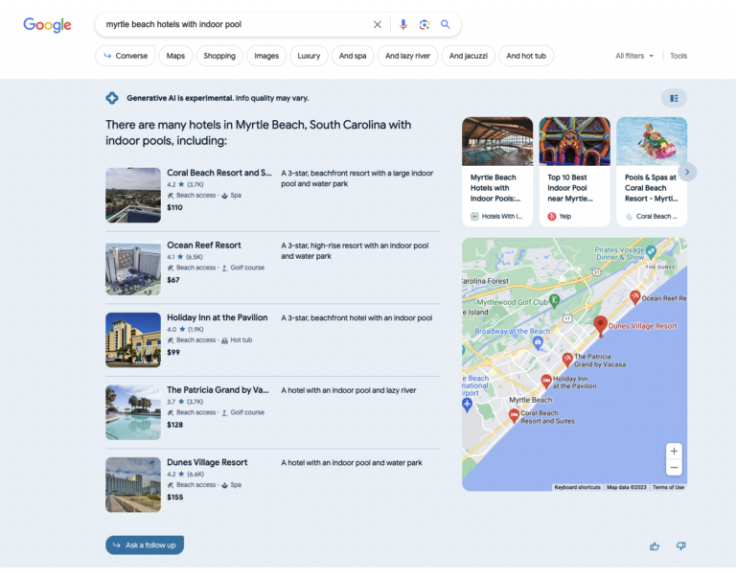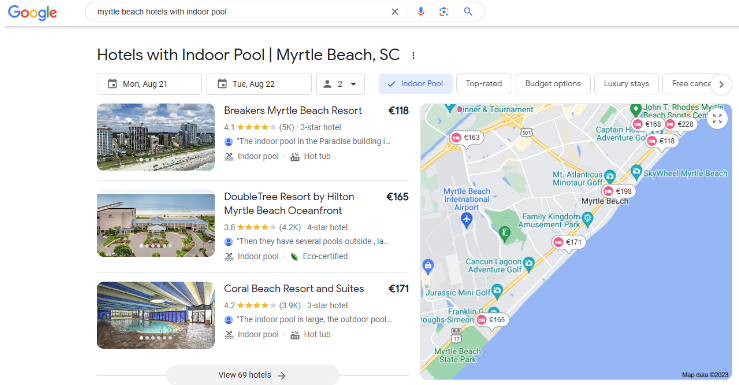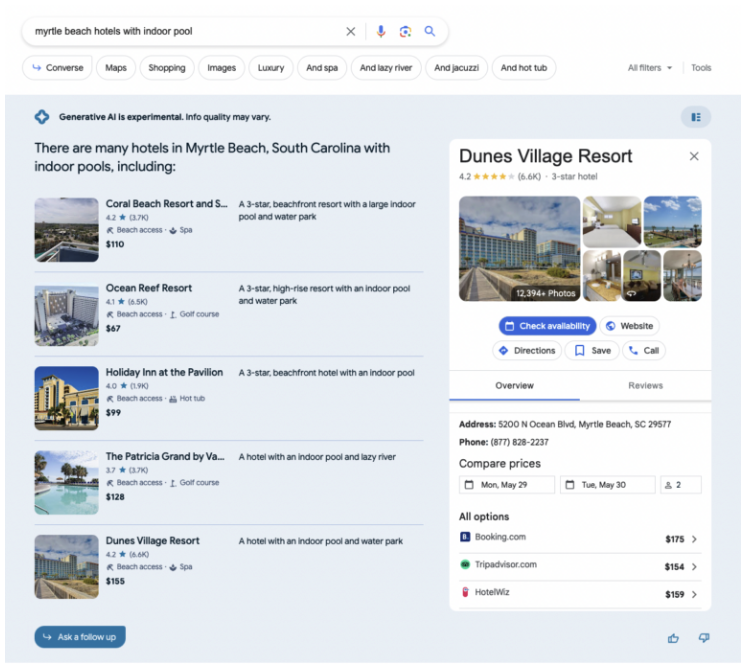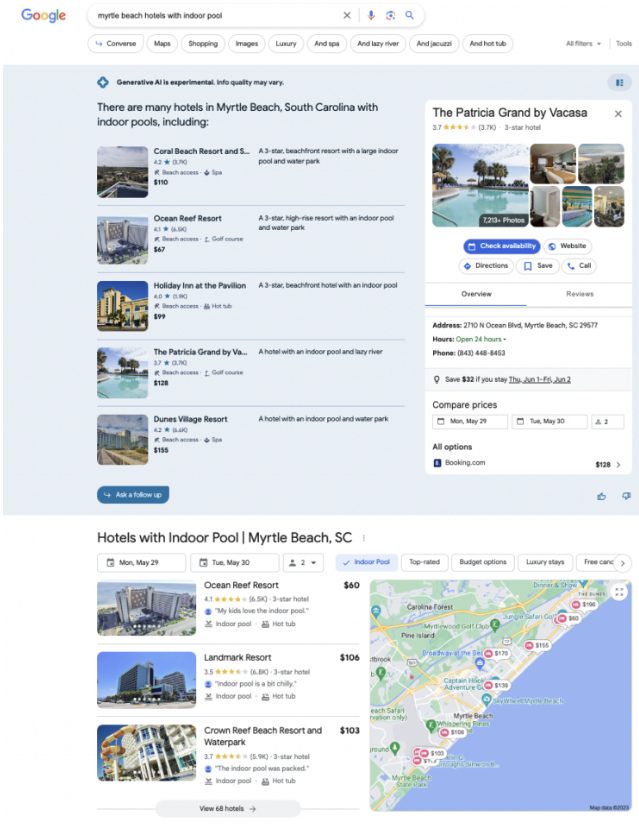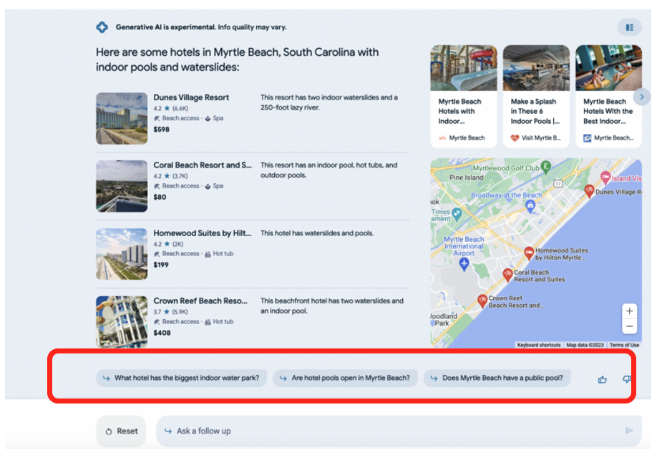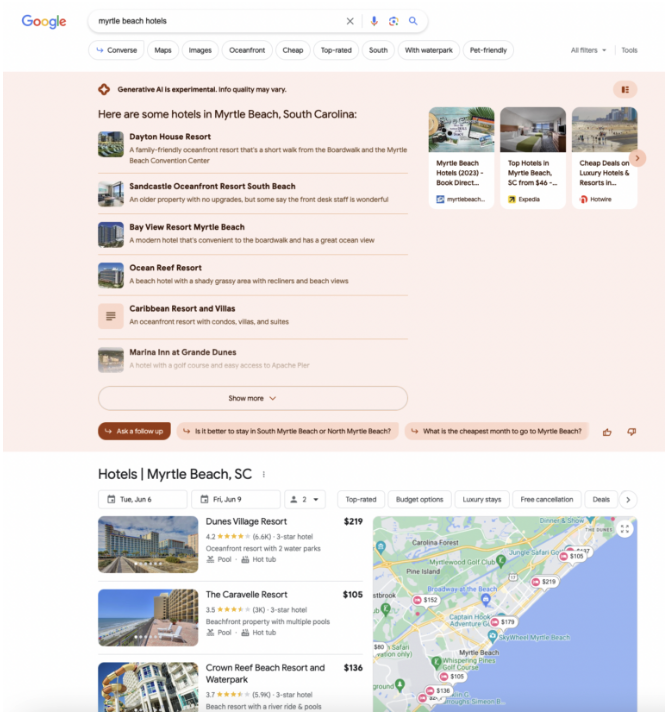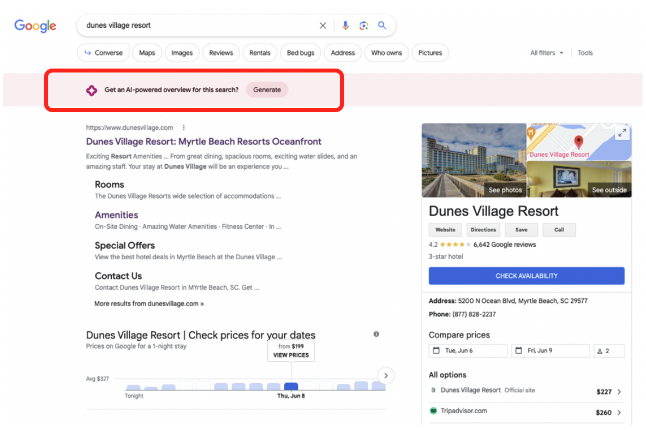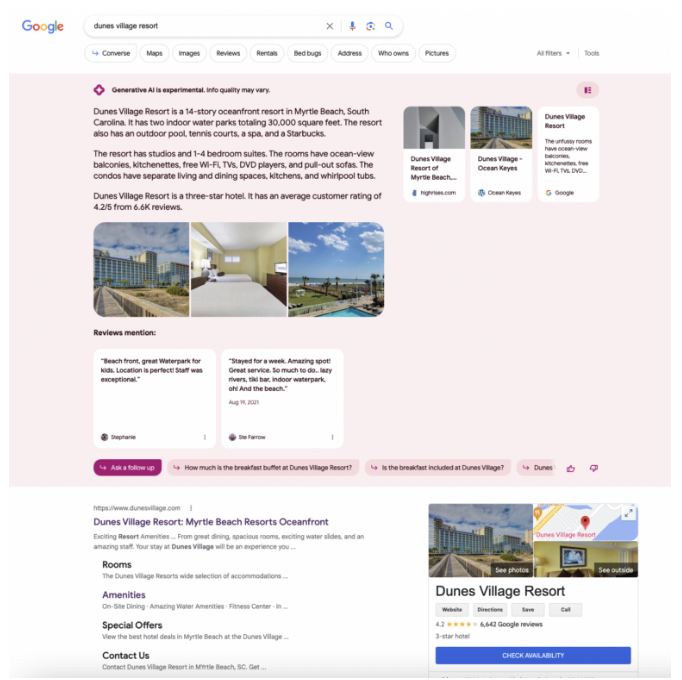In recent months, the hype has been growing about the incursion of artificial intelligence into search engine results pages, especially in the hotel industry. Although it is too early to say definitively how the application of AI will affect results pages, we can already get a glimpse of how this technology will affect the hotel industry.
This change is a result of Google’s efforts to introduce the Bard AI language model, and its Generative Search Experience initiative, known as the Generative Search Experience (SGE). It is expected that this new form of search could revolutionize the way users interact with search results.
Concept Generated Research Experiment (SGE)
The SGE concept, which Google is looking to implement, represents a milestone in the evolution of search results pages.
SGE proposes a search experiment in which answers and results are generated by artificial intelligence systems. In essence, it is a redesign of the traditional search experience where the results and their display will be different than what users are used to.
This SGE approach opens a new chapter in which the display of responses generated by Google’s ecosystem is prioritized, relegating third-party sources to the background. With this, the Knowledge Panel and Local Pack become relevant, replacing the traditional “10 blue links” in search results.
Look at the initial changes
Although these changes are still in an early stage and not clickable, initial images have been released that provide an idea of what the new search results interface could look like:
- Expand the “local package”: SGE offers the ability to display up to five results in a Local Pack, highlighting the importance of Local SEO and Google My Business optimization for hotels.
before:
How could it be:
Each entry also includes a short excerpt of text that briefly describes the hotel. There is also a link to images in the upper right corner that links to SGE information sources. These sources are a mixture of online travel agencies, travel websites and official hotel websites.
After clicking on a hotel, either in the list on the left or via a pin on the map, the property’s Google Business Profile appears with all the information you would expect from a hotel’s Google profile.
In the GHA section, sponsored ads were conspicuous by their absence and only organic links are shown (all options), but this may simply be because it’s a beta version and Google is continuing to experiment with how to integrate hotel rate ads with SGE.
The most curious thing about it and not forgetting that these are just experiments, is that Google continues to display the usual 3 Local Pack ads:
- Excerpts from inspiring questions: Adding inspiring question snippets, similar to the People Also Ask feature, encourages exploration of AI-generated answers and provides a richer experience for users.
- Varied result designs: Initial designs show result options with possible variations, including hotel listings and OTA ads.
- Interact with artificial intelligence results: Provide the ability to convert a query into an AI-generated result via a button. When clicked, an expanded description is displayed that includes comments, photos, ads, and more questions.
Ramifications
These changes can have a critical impact on traffic and results for both SEO and metasearch, depending on how Google implements these shifts. Some conclusions and potential practical implications include:
- Changes in visibility and traffic: At first glance, changes may affect hotels’ visibility and traffic on search results pages. The search experience feels less transactional and more focused on displaying AI-generated information.
- Promote local SEO: Google My Business management and local SEO are becoming more important. The Local Pack can show more results (up to five), and Google Travel’s visibility can increase, displacing traditional organic results.
- Determine priorities for information sources: Google appears to favor its own ecosystem by offering informational and navigational resources that shift users’ attention toward direct channel options.
- Challenges facing online travel agencies: Online travel agencies should increase their visibility through meta search ads, as the designs suggest less importance than traditional ads.
- Changes in CTR and SEO: The current CTR for organic results will likely decline, and prioritizing formats in the Google ecosystem may change the way traditional SEO is approached.
Conclusion
The arrival of AI on search results pages, through Google’s SGE initiative, charts a new horizon in the hotel industry and beyond. Although the changes are preliminary and could evolve, it is undeniable that AI will change the way hotels interact with search results. This paradigm shift poses challenges and opportunities for marketers and the industry at large.
Adapting to this new era of AI-powered research will be essential to staying relevant and successful in an ever-evolving environment. We have a very exciting few months ahead to see what final decisions Google will make regarding SGE and how they end up implementing the changes. We will be alert!

“Beer enthusiast. Subtly charming alcohol junkie. Wannabe internet buff. Typical pop culture lover.”

